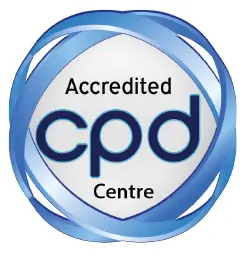Is This for You?
This course is for anyone who is interested in learning the essential research methods and tools used to draw conclusions from data.
Award and Associated Qualifications


This course is for anyone who is interested in learning the essential research methods and tools used to draw conclusions from data.

The course will introduce you to the fundamental concepts of data research, such as quantitative and qualitative research techniques, experimental and non-experimental research approaches, and inferential tests of real-time scenarios.
As you work through the course, you’ll learn descriptive statistics, which summarise data from a sample using indexes, such as the mean or standard deviation, and inferential statistics, which draw conclusions from data that are subject to random variation (e.g., observational errors, sampling variation).
The course consists of three modules and includes demonstrations, hands-on activities, and knowledge tests at the end of each section of the course.
Module 1: Data Research Techniques & Statistics for Data Science
Simple Descriptive Statistics; Common Approaches to Sampling Data; Inferential Statistics
Module 2: Statistical & Hypothesis Tests
Getting Started with Hypothesis Testing; Using the One-Sample T-Test
Module 3: Data Research Techniques & Statistical Approaches
Data Research Exploration Techniques; Data Research Statistical Approaches
"*" indicates required fields
The aim of the course is to ensure your understanding of the fundamental research methods and tools used to draw conclusions based on data.
There are no pre-requisites for this course.
Wherever possible our training is tailored to your needs. The cost of our training programmes depend on the course(s) you choose and varies according to duration and breadth. Rest assured we have a number of payment options available to ensure the cost of training is affordable and can be worked alongside your other financial commitments. Common ways people fund their training include: –
Requesting funding from your employers needn’t be a daunting task. Many employers support and encourage their employees with their professional development and consider it a worthwhile investment to fund any training required.
What we can help with:
There may be the opportunity to apply for funded grants that can help towards the cost of training. These include the Skills Development Scotland ITAs and the ReAct programme in Wales. All schemes will have different terms and conditions that will need to be met in order to qualify for a grant and these are managed by each individual centre.
We’d recommend you speak to a Course Advisor in your local centre to find out whether they are registered to offer any such schemes and discuss your requirements further.
* Terms and Conditions apply. Speak to a Course Advisor for full information on the options available to you.
To enter the field of data science, it’s essential to learn the techniques underpinning data research and statistics. A strong understanding of research methodology and modelling is key to performing robust analytics and data interpretation.